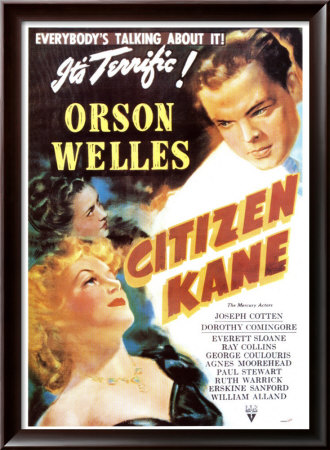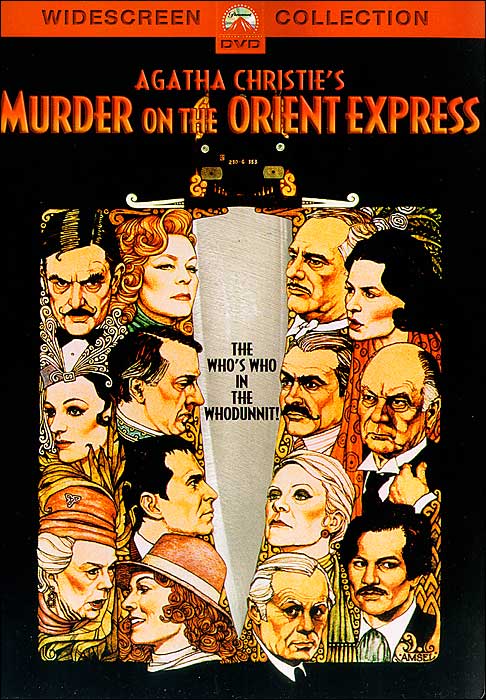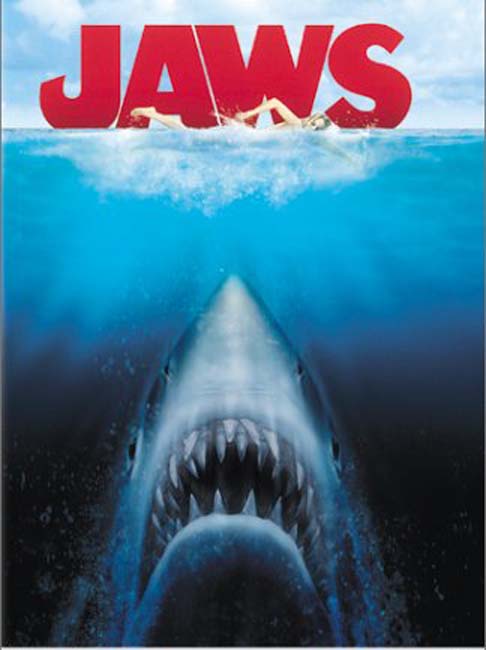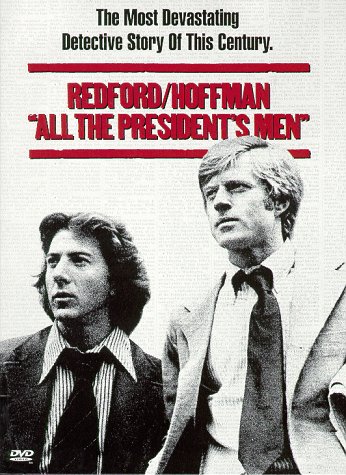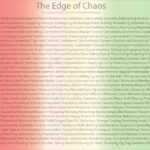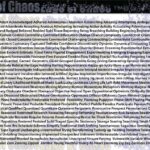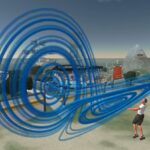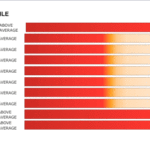Here is a spoiler alert – if you are likely to be going to the cinema or watching TV in the next while, you may want to skip the next paragraph.
Rosebud was his sledge. They all did it. The dog dies in the final reel. The shark gets blown up with a scuba diving tank. Nixon resigns. She dies. He dies. Dr Evil escapes.
In this time-poor world you can thank me for giving you the endings to some of the better films in cinema history thus saving you having to watch them. Curiously not everyone I meet is thrilled when I tell them the ending to a movie. Oddly they prefer to be surprised, and let the movie unfold for them.
However this attitude of going with the flow, seeing where it ends up, living with emergence rarely extends to our careers. Here we are encouraged to plan thoroughly, to visualise or imagine how things will play out, to know in advance what are next steps, and indeed are foreseeable steps will be.
So why this disconnect? Why is surprise ok in the movies, but less in careers? Maybe we are more personally invested in our careers. We believe we stand to lose more if we do not keep on top of our careers, and know in advance where we are going.
We often admire people who know where they are going. But think about that statement for a second. What does it mean to say you know where you are going? Well about the only certainty (I think) is that we are going to be dead at some point, and even then, we are not certain what it means to be dead, or what “dead” is like, if anything, and if it is not like anything, what it is like?
“I know where I am going”. No you do not. Not entirely. Not certainly. Ok, I hear you say, that much is a given, but we can gain a lot from planning out a direction, and a good plan incorporates the possibility that it will not work. From there it is but a short step into all of the popular planning tools out there – whether it is setting goals, developing strategies, or exploring the most likely outcomes. All of these methods whether they use testing, imagination or narrative, work on the assumption that we need to narrow down a range of probable alternatives to explore more fully before finally deciding upon a course of action.
Such approaches can be useful and reassuring (especially they are reassuring to others, like parents, spouses, friends and teachers). However the Chaos Theory of Careers characterises people as limited in their ability to fully know their own circumstances or indeed needs and wants. It is a work in progress and over time these will change, sometimes trivially, and at others more dramatically or uncontrollably.
From this perspective, the planning model is also seen as limited. There is no guarantee after our careful and rational deliberations that we will end up on a satisfying path. The sense of confidence about our new found direction may ultimately serve only to send us focused and furiously up a blind alley. But hey, at least we exuded confidence as we ground to a halt.
An equally valid method of exploring our world is through living with emergence. This is the suck and see approach, the curiosity driven approach, the experimental approach, the small steps approach, the planned failure approach. Here the emphasis is constantly testing ones thinking, ones skills, or knowledge as well as the opportunity structures in the world. It involves trying things out, not fully knowing how they will end up. It is setting off on a journey and seeing where it takes you.
Such an approach involves not ever more focus, clarity and control, but continued curiosity, openness, flexibility, efficacy and optimism. It involves what Steve Jobs of Apple has referred to as “I do stuff, I respond to stuff” (Steve Jobs being interviewed by Stephen Fry in Time Magazine. Jobs responding to Fry’s question about his “career” said “”I do stuff. I respond to stuff. That’s not a career — it’s a life!”) (see this post).
Interestingly we are so conditioned to accept planning approach as superior, people often dismiss or worry about following the emergent approach. “You must have a direction”, “You must make a choice” etc. I think part of the problem is that people are less clear what the emergent approach really is, and perhaps confuse it with ideas like dropping out, drifting, being fatalistic, avoiding difficult choices, running away, being childlike etc.
However it is a mistake to equate an emergent approach with these kinds of notions. An emergent approach is about continually engaging, gauging and engaging, often in lots of different directions simultaneously. It is not about passively sitting back and waiting to see what happens. Rather it is about immersing oneself in a range of activities, and actively monitoring and reflecting on our attitudes to these, so we can modify, amplify, diminish or extinguish the activities as we see fit. As Jobs puts it, it is about doing stuff and responding to stuff.
Ironically, it is more likely that the planning model with all of its assumptions that one can discover and think through in advance sensible options to move you in a good direction that can lead to inaction as people stall with fear lest they make the wrong choice, or choose to explore a dud option.
This is evident in situations where, for instance, a College student cannot choose a major. The planning perspective is that there must be a correct decision. Planners are likely to throw their arms up in despair at any suggestion that the student do anything other than think even more deeply about their situation and preferences. There is money at stake here afterall!
For some students, this may be helpful if they have been partying so hard they almost forgot why they had gone to College in the first place. However for most, this injunction to think harder or deeper serves only to frustrate – as though they haven’t already tried this.
Here it may well be better to suggest an emergent approach. Simply go with one or other choice, but at the same time try out other things. Take other courses on the side, get more experience in a range of other things, see what comes of those endeavours. It may well be the case that one of these avenues leads somewhere entirely different and more enjoyable than any of the original options. However it may also be the case, that they would never have known this at the time.
But this is not optimal, and the student ends up with a degree (and a bill) in a subject area they are no longer interested in. Well that is the point, and that is life. We cannot always know these things in advance. However that student, if they followed the emergent approach will have been energetically exploring, doing and responding to stuff that will likely have sharpened their likes and dislikes and exposed them to things that are more likely to provide them with some satisfaction.
So the student ended up with a degree that they do not use directly. So what? Tell that to the 60% of Engineers who end up in Business, or the vast majority of Psychology graduates that do not practice Psychology. It is not a tragedy. It is only a tragedy if they are encouraged to see their choices as being sub-optimal failures, rather than in the context of ongoing exploration, self-awareness and environmental awareness.
One of the benefits of the Emergent approach is that in adopting it or recommending it, we are privileging ideas like flexibility, curiosity, openness, adaptability, opportunity awareness and skills of reinvention. These ideas are actively downplayed or seen as weaknesses or problems in the planning approach. However in a world that is increasingly unpredictable and chaotic, employers are crying out for flexible workforces, and the person who is able to re-invent themselves or be flexible in what they can offer is likely to be more gainfully employed, as well as more satisfied with what they do. Emergent approaches are good approaches for the times we live in.
Ultimately, we all live with emergence whether we like it or not. It is our reactions to this fact that can lead us astray. An over-reliance on planning, and on insisting on knowing in advance places unrealistic demands upon the world, and can have counter productive results.
Our careers are not like movies, we cannot know the end, even if we wanted to. They do not follow the script, even if we wanted them to. And they are not best enjoyed as a viewer in the 2nd row with a box of popcorn.
Living with emergence, means just that. Living.
Shiftwork is the work we have to do to manage, thrive and survive in a world where shift happens. I’ve identified 11 shifts that we have to make (see here), so far I’ve addressed the first nine, and in this post, I addressed the tenth shift. The earlier ones you can read by following these links:
- first shift Prediction To Prediction And Pattern Making (see here)
- second shift From Plans To Plans And Planning (see here)
- third one From Narrowing Down To Being Focused On Openness (here)
- fourth shift From Control To Controlled Flexibility (see here)
- fifth shift From Risk As Failure To Risk As Endeavour (see here)
- sixth shift From Probabilities To Probable Possibilities (see here)
- seventh shift from Goals, Roles & Routines to Meaning, Mattering and Black Swans (see here)
- eighth shift from Informing to Informing and Transforming (see here)
- ninth shift from Normative thinking to Normative and Scaleable thinking (see here)
Related Posts

